#Fifth Estate
Explore tagged Tumblr posts
Text
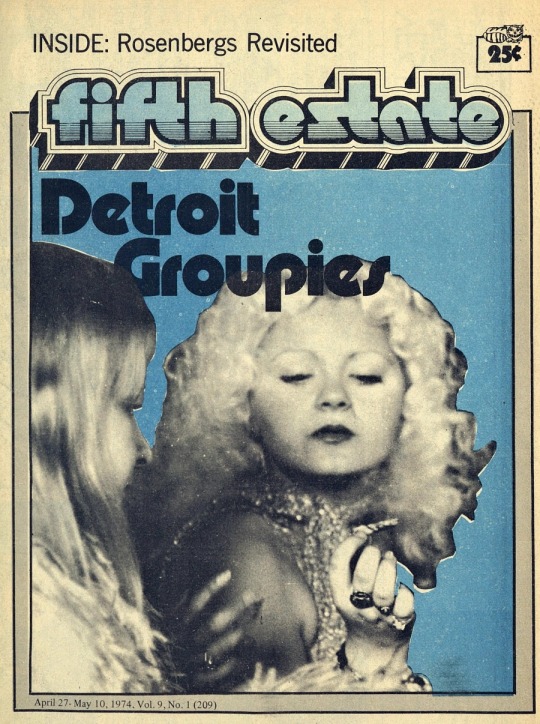
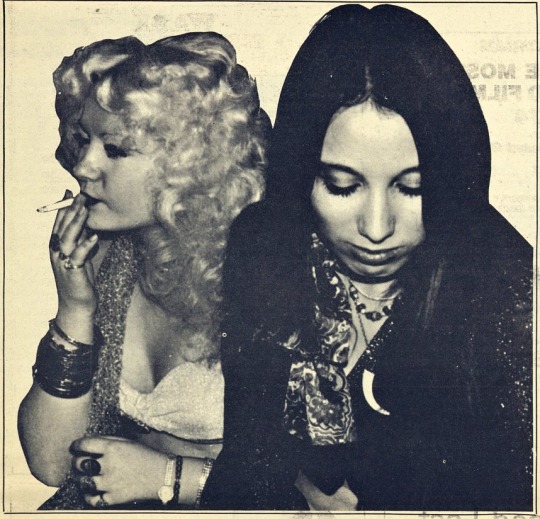
1974
580 notes
·
View notes
Text


In mid-August, a three year-old lawsuit charging that environmentalist groups were religious extremists comparable to some of the more violent, intolerant, ultra-orthodox Islamic sects collapsed when the attorney failed to meet a re-filing deadline with the U.S. Supreme Court.
The suit had been brought against the Forest Guardians, the Superior Wilderness Action Network, and the U.S. Forest Service by the 125 companies that make up the Associated Contract Loggers (A.C.L.) of northern Minnesota. The loggers were asking for $600,000 in damages and permission to plunder timber from the Superior National Forest.
Lawyers for the A.C.L. argued that deep ecology was actually a religion, and so by extension, environmental groups that espoused its philosophies were cults, and by outlawing timber cutting on so-called “federal land,” the Forest Service was favoring a particular set of religious doctrines and was therefore violating the guarantee of neutrality in matters of religion purportedly vouchsafed in the U.S. Constitution.
According to theological scholars at the logging company syndicate like former executive director, Larry Jones, Deep Ecology is an “earth-centered religion,” a “belief system” that holds that “trees and Man [sic] are equal.” Anti-logging activists who extol the virtues of forested spaces over industry profit and environmental degradation are spiritual zealots, and the government functionaries who are swayed by their proselytizing may turn out to be fanatical closet druids themselves.
Stephen Young, the A.C.L. lawyer and a former Republican Party senatorial candidate, explained his legal action on such esteemed venues as Rush Limbaugh’s radio show by saying that clear-cutting in national forests had been restricted by the Forest Service for no reason other than reverebce for some fringe New Age religion.
A U.S. District Court judge in Minnesota dismissed the case as “frivolous” in February 2000, but the A.C.L. petitioned the Supreme Court last year after reports that Wahabi Islamic extremists were responsible for the blitzkrieg attacks on the World Trade Center and the Pentagon.
“The doctrine of Deep Ecology is the very worldview that gave rise to eco-terrorism. We feel that after the events of September 11, it’s an obligation of the Supreme Court to keep religious fanaticism in check,” Young said. “Just as devout faith in the literal words of various Hadith of Mohammad gave the Taliban license to impose through state power harsh conditions on the women of Afghanistan, so Deep Ecology gives license to its adherents to take extreme actions against those who would live by different beliefs.”
Perhaps the less said about this sleazy episode the better, which is just as well, since it is so hard to get a firm analytic grasp on it because it is sad and sick on so many different levels. For instance, likening the plight of women in Afghanistan to that of lumber barons in northern Minnesota is staggering in its shamelessness, as it has been my experience that women living near industrial logging camps are subjected to at least the same sort of abuse, derision, and masculinist domination as women who had been living in Taliban-controlled Kandahar.
And we all know that if the U.S. government was serious about keeping homicidal religious terrorism in check, then John Ashcroft and the Army of God anti-abortionists would be in the Guantanamo Bay gulag. It was all obviously just a miserable attempt to slander and jam up anti-logging activists with legal action, and it failed.
But I can’t help thinking about the broader philosophical implications of who supported it. I have no idea as to whether or not there are Deep Ecologists involved in Forest Guardians or the Superior Wilderness Action Network (and I suspect that none are to be found among the Forest Service feds), but in demonizing Deep Ecology as an alien fanatical religious practice in this lawsuit, we can see once again how tighly Christianity is bound to capitalist exploitation and ecological destruction.
Deep ecology is not a single doctrine, but rather an ethical sensibility informed by a variety of perspectives on the relationship of hummankind to the whole of nature’s systems. We can oversimplifydeep ecology by saying that its fundamentals include a belief in the intrinsic value of all forms of life as well as the holistic diversity of those life forms. The economic, technological, and ideological beliefs that prop up Western civilization antagonistically threaten the existence and diversity of natural life systems.
Individuals who adhere to the ideas of Deep Ecology are obligated to work towards radically changing those deadly attitudes and social structures. Deep ecology challenges the long-held anthropocentrist notion which entitles humans to take advantage of and destroy wilderness at will and for private profit, a view obviously held sacred by the A.C.L. timber industrialists.
Anthropocentrism derives from core Judeo-Christian values that have been part of the settler-capitalist catechism on this continent since the early seventeenth-century. Consider, for example, the preaching of Puritan minister, John Cotton. In his popular pamphlet of the 1630’s, “God’s Promise to His Plantation,” Cotton claimed that God desired colonists to “take possesion” of land in New England, saying that whosoever “bestoweth culture and husbandry upon it” has an inviolable divine right to it.
The Native Americans, dying in large numbers from exposure to European diseases was proff that God wanted to wipe the slate clean for the Puritans and thereby better facilitate His decree in the Book of Genesis that humans aggresively “subdue” the earth. Christians were the center of the universe, exclusively licensed by Almighty God to dominate the land, eradicate wild nature, and replace it with the purity of civilization. “All the world out of the Church is as wilderness, or at best, a wild field where all manner of unclean and wild beasts live and feed,” Cotton proclaimed in 1642.
There were many others during the period who were at least as enthusiastic about Christ, colonization, and commercial cultivation as Cotton was, and these ideas, linked to distinctly Judeo-Christian models of linear (rather than seasonally cyclical) time, became ingrained in the settler psyche, especially during the era of westward expansion some two centuries later. Justified by the Calvinist capitalism of Adam Smith’s The Wealth of Nations — complete with its fallacious notions about the ennobling “civilizing” powers of wealth, marlets, and economic growth — the implications of Puritan repugnance for the wilderness and wildness on the North American continent becomes depressingly clear.
As inheritors of Puritan fanaticism that have erected the violent, intolerant faith of capitalism, it is individuals and organizations like the A.C.L. who hold a worldview that advances a five hundred year-old campaign of terrorism against entire bioregions and “empowers its adherents to take extreme action against those who would live by different beliefs.”
#deep ecology#environment#Fifth Estate#359#Green Scare#legal system#religion#anarchism#revolution#climate crisis#ecology#climate change#resistance#community building#practical anarchy#practical anarchism#anarchist society#practical#daily posts#communism#anti capitalist#anti capitalism#late stage capitalism#organization#grassroots#grass roots#anarchists#libraries#leftism#social issues
53 notes
·
View notes
Text

“We are taught since early childhood that everything in the world exists in a food chain as a “resource” to be consumed by those higher up the chain and concurrently as the consumer of “resources” that are lower in this predatory hierarchy. We are also told that life in the wild is hungry, fraught with mortal danger and that civilization has spared us a short and brutish existence. As children, we thus come to believe that life in civilization is good for us, in fact even indispensable for our very survival…”
“…Since civilization is rooted in the appropriation of food and “natural resources” as well as of slave labour (dogs, horses, cows, women, miners, farmers, et al), all of our institutions today inadvertently cater to these constructs and the needs that have been generated by this monocultural perspective. That is why every contemporary institution or company has a department of “human resources” and is thereby linked to managing, killing, and protecting the ownership of “natural” and other resources.
Hence, everything, including humans, became “professionalized” and thus divided into gendered, ethnic, racial, and other categories specializing in specific spheres of labour thereby falling into defined niches of the “food chain”. Language reflects these categories and naturalizes oppression. For instance, in European languages, humanity is conflated with maleness. The word “woman” allows us to unconsciously accept that womanhood entails an aspect of humanness which erases our (female) animality thereby excluding the depersonified nonhuman animals from the privileges accorded to some animals (a small group of primates) by belonging to “humanity”. Moreover, by separating these categories of humanity, animality, femaleness, maleness, race, ethnicity, et al., language veils the racist, speciesist, and patriarchal essence of civilization where human and nonhuman women have been relegated to a class specializing in the production of human and nonhuman resources.”
#anarchism#domestication#fifth estate#anti colonization#anti school#green anarchism#green anarchy#anti civ#youth liberation#primivitism#vegan primitivism
33 notes
·
View notes
Text

youtube
A look into the bonkers Canadian equivalent of Trump supporters...
10 notes
·
View notes
Text
youtube
Behind the scenes of 50 years of CBC’s investigative show The Fifth Estate
#cbc#fifth estate#this is really interesting because they talk about how people try to get stories killed#in one case cbc’s president killed a story about a premier who committed csa and the fifth estate aired it 14 years later#they also talk about historical misinformation to foment war#(gulf wars 1 & 2)#Youtube
0 notes
Text
Information Revolutions
That historical moment when British newspapers were prohibited from reporting parliamentary debates was a defining period in the history of freedom of the press. It reminds us that information has always been a source of power, and those who control it often wield great influence over the public. The bravery of a few men in the late 18th century, who defied this restriction, printing pamphlets to leak parliamentary debates, played a pivotal role in the establishment of what we now call the “Fourth Estate.” These men were willing to risk their lives for the truth many of them were indeed hanged but their actions sparked public outcry, demanding transparency and accountability from those in power.
It was a turning point. From that passion, that defiance, the modern media was born an institution built on the premise that the public has the right to know what happens in the halls of power. The press became a crucial watchdog, a necessary check on government authority, ensuring that those who lead us are held accountable for their actions. But now, centuries later, we find ourselves in the throes of yet another information revolution.
This time, it is not just the state that media institutions must contend with, but an entirely new phenomenon: the rise of the “Fifth Estate.” In the digital age, the flow of information is faster, wider-reaching, and more democratised than ever before. Social media, citizen journalism, independent content creators like myself all wield immense influence over public discourse. At face value, this seems like a positive evolution more voices, more platforms, more freedom. However, this fifth estate, with its decentralised structure and viral speed, threatens to dismantle the very system that was built to ensure truth and accountability.
The traditional media the Fourth Estate is struggling to keep up. The institutions that have historically been tasked with keeping the public informed are now being undercut by newer, faster, often less accountable sources of information. The consequence? Misinformation spreads more easily, and trust in reliable sources diminishes. I mean seriously ask yourself. “Do you even trust what the BBC says anymore?” The Fifth Estate, seemingly hell-bent on bypassing its predecessors, is both a revolutionary force and a destabilising one.
All the old models print media, broadcast journalism, even traditional online news are dying faster than they can be replaced. As the shift occurs, we find ourselves in a chaotic transitional phase where the speed of change outpaces our ability to adapt. The once-unchallenged Fourth Estate is now fighting for relevance, for authority, in a world that increasingly sees it as outdated.
So what is the way forward? If history teaches us anything, it’s that brave souls are needed once again those who will stand for truth and fight for the integrity of information. The current revolution may be digital, but the principles remain the same. We need those who are willing to speak out against misinformation, to prioritise facts over vitality, and to hold those in power accountable in this new landscape. Just as the pamphleteers of the 18th century did, today’s brave souls must challenge the tides of misinformation and stand firm in their commitment to the truth.
Yes, the Fifth Estate is here. And yes, it is rapidly changing the game. But history shows us that revolutions in information do not mean the end they mean the beginning of something new. Let’s hope that, as the dust settles, we can build a future where truth, accountability, and transparency are stronger than ever. But to do so, we need visionaries who are ready to shape this new era, just as those brave men once did those who were hanged.
And from that sacrifice, a legacy was born.
Now, it’s our turn.
#Freedom of the Press#Fourth Estate#Fifth Estate#Media Revolution#Information Age#Misinformation#Citizen Journalism#Social Media#Media Accountability#Digital Media#Historical Journalism#Parliamentary Debate#Freedom of Information#Truth in Media#Brave Journalism#Information Revolution#Traditional Media#Media Integrity#Public Discourse#Media Evolution#today on tumblr#new blog
0 notes
Text
Don't want to put this on the post itself for risk of derailing it, but that post the other day about Terry Pratchett's early work really stuck in my mind. OP had sent in an ask saying that they heard some of Pratchett's earlier works had problematic elements (not unusual for a male english writer in the 80s) and they weren't sure whether to go ahead with reading the work anyway.
What I really want to ask that person, or indeed all persons who are hesitating over whether or not to read problematic works or works by imperfect authors:
What are you worried about happening, if you read a work with problematic elements?
I'm worried that if I read this art, I will run across hateful images or words that will shock or upset me
I'm worried that I will spend money on a work of art that then financially supports a bad person, and that thought makes me uncomfortable or upset
I'm worried that I will read works of art written by a bad person, and comment or react on them, and other people will see what I am reading and will think less of me because of it, or will assume that I hold the same bad beliefs as the author
I'm worried that I will read works of art written by a bad person, and I will enjoy them, and the author will find out about my enjoyment and feel emboldened to do bad things because of it
I'm worried that I will read works of art written by a bad person, and their badness will contaminate my way of thinking and make me a worse person in turn
Because these are all different answers and some of them are more actionable than others
#salty sunday#for the first: it's up to you whether you want to take that risk but keep in mind you can always stop if you feel discomfort.#this isn't school and nobody is going to require a book report from you on it#for the second: whether the author is even still alive let alone receiving proceeds from the work is something you can check on#if they're a more classic author and their estate/family is still getting proceeds you can decide whether you feel the issues of the author#are something worth punishing their family over#for the third: you can't control what other people think. don't try.#for the fourth: the author is gonna think and do whatever they think and do entirely independent of the response of the audience#assuming they even found out what you think ever which is very unlikely. see above about not being able to control what other people think#for the fifth: moral contamination is not a thing. kick the little fascist voice out of your head. be free
931 notes
·
View notes
Text













DANIEL BRÜHL as Daniel Berg THE FIFTH ESTATE (2013) dir. Bill Condon
#daniel brühl#sdb.gif#sdb:dbcu#the fifth estate#bill condon#danielbrühledit#sdb:other#2010s#he makes a lot of stupid faces in this movie#tragically he is still cute. not enough to make watching this worthwhile but its too late for me#that one orange-blue lighting one looks like he has an Evil Villain eyebrow
68 notes
·
View notes
Text
Who out there would like a real education on the reason why the US government has been so badly wanting to ban tiktok?
#us govt#us government#luigi mangione#united healthcare#journalism#the fifth estate#freedom of the press#ceo assassination#suppression of information#United healthcare shooting#tiktok ban#Noah Chomsky#gatekeeping
40 notes
·
View notes
Text
PICK YOUR DANCE PARTNER, DANIEL BRÜHL CINEMATIC UNIVERSE EDITION:
*cue Murder on the Dancefloor by Sophie Ellis-Bextor*
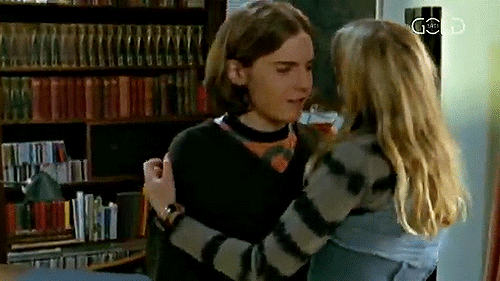
Nikolas Koll, Der Pakt - Wenn Kinder töten (1996)
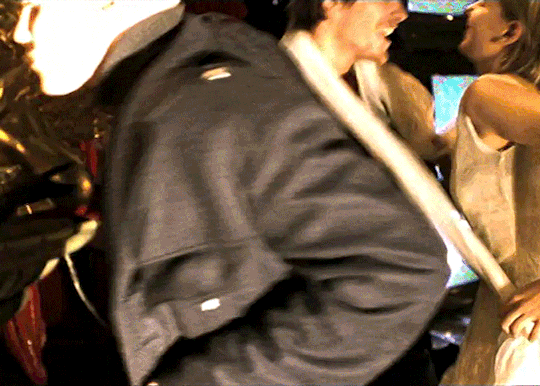
Checo, Paradise Mall / Schlaraffenland (1999)
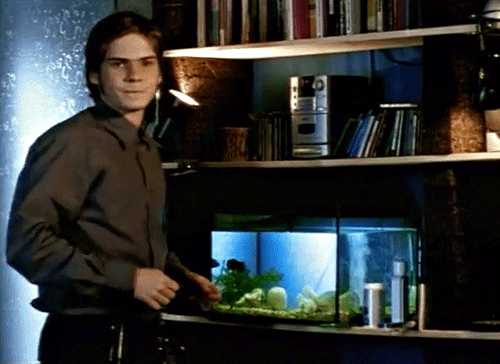
Marek, Honolulu (2001)
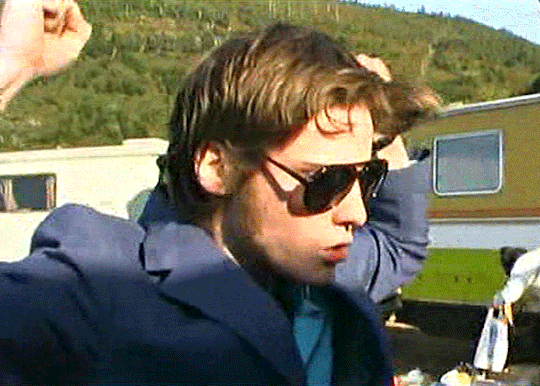
Lukas, The White Sound (2001)

Arbo, Vaya Con Dios (2002)
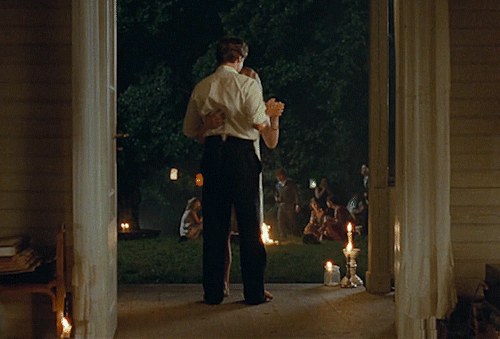
Paul Krantz, Love in Thoughts (2004)

Klaus Prompst, In Tranzit (2008)

István Thurzó, The Countess (2009)

Álex Garel, Eva (2011)

Konrad Koch, Lessons of a Dream (2011)

Daniel Domscheit-Berg, The Fifth Estate (2013)
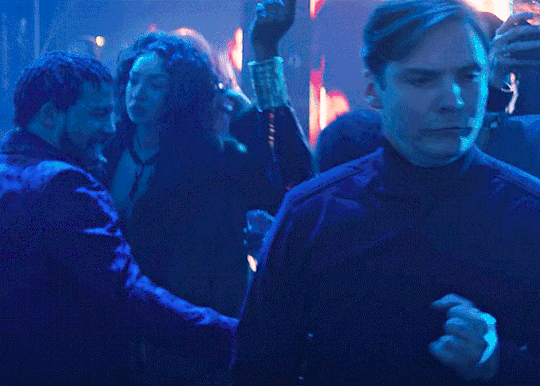
Baron Zemo, The Falcon and the Winter Soldier (2021)
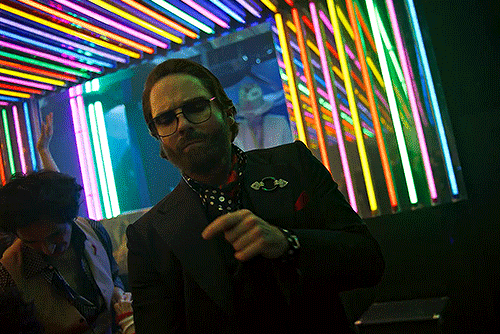
Karl Lagerfeld, Becoming Karl Lagerfeld (2024)
#daniel brühl#dancing#db dancing#baron zemo#helmut zemo#tfatws#The Falcon and the Winter Soldier#Marek#Honolulu#Paul Krantz#Love in Thoughts#Klaus Prompst#In Tranzit#Checo#Paradise Mall#Schlaraffenland#István Thurzó#The Countess#Daniel Domscheit-Berg#The Fifth Estate#Álex Garel#Eva#movies#Lukas#The White Sound#Konrad Koch#Lessons of a Dream#Der ganz große Traum#Arbo#Vaya Con Dios
168 notes
·
View notes
Text

Happy Birthday Benedict 🥳🎂🎈🎁🎉
Benedict Timothy Carlton Cumberbatch
July 19,1976
Buon Compleanno 🥳🎂🎈🎁🎉
19 Luglio 1976
#benedict cumberbatch#actor#world cinema#cinema#movies#film#tv shows#thirdstar#star trek into darkness#the fifth estate#the hobbit#smaug#foraysomething#brexittheuncivilwar#the courier#the power of the dog#thewonderfulstoryofhenrysugarandthreemore#bbc sherlock#sherlock holmes#paradesend#patrick melrose#celebrity#happy birthday
43 notes
·
View notes
Text

1970
93 notes
·
View notes
Text

Photo Section In The Fifth Estate In 2013 Behind The Scenes🔥
18 notes
·
View notes
Text
I’m overly attracted to Peter Capaldi. The feelings I have for this man need to be studied.
#The twelfth doctor edits with the hands#GODDAMN#and the ones with him in a suit#when peter capaldi is shouting in the thick of it#or as anyone#young peter capaldi also#just#peter capaldi#12th doctor#twelfth doctor#dr who#doctor who#malcolm tucker#the thick of it#the fifth estate#the lair of the white worm
130 notes
·
View notes
Text
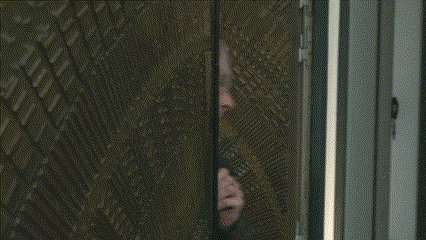


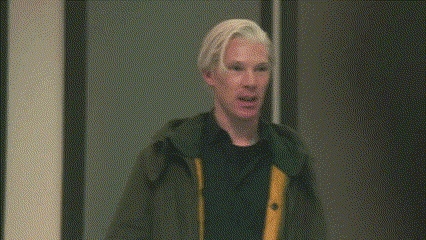
Oh, hai Julian... You are cute. 🥰
#assangie#the fifth estate#my beautiful feral vagabond boy#i love him so much#my gifs#i know they're not the greatest#but they look okay on my phone and my computer#and not so great on the tablet 😕#should I throw into benedict tag even tho he's NOT benedict dammit lol#benedict cumberbatch#❤️❤️❤️❤️
49 notes
·
View notes
